por Alfredo Jalife-Rahme
Ex: http://paginatransversal.wordpress.com
Al mismo grupo sunita Estado Islámico de Irak y el Levante” (Isil), que significa Daesh en árabe, Estados Unidos lo apoya (¡supersic!) con el fin de derrocar al presidente sirio Bashar Assad (de la secta alawita, una excrecencia del chiísmo), y lo combate (¡supersic!) simultáneamente para defender en apariencia al atribulado gobierno de su aliado chiíta árabe Nuri Maliki.
La teocracia chiíta de Irán (que no son árabes, sino persas arios) no exhibe las mismas contradicciones
flagrantes de Estados Unidos, ya que apoya tanto al presidente sirio alawita Bashar como al primer ministro chiíta iraquí Maliki.
Daesh no se pierde ni se confunde con la semiótica nebulosa que ha creado deliberadamente Estados Unidos.
Este país cumplió la mismacontradicción
, que llegó a ser triple, con Osama bin Laden, cuya familia fue aliada del nepotismo dinástico de los Bush (“Osama El Bueno y Osama El Malo”, Bajo la Lupa, 6/7/02; y La enésima muerte teatral de Bin Laden y su geopolítica
, mientras era combatido (sic) puntualmente en Afganistán/Pakistán (Afg/Pak
) y apoyado (sic) selectivamente con los sunitas europeos de Kosovo en la Yugoslavia hoy balcanizada.
Lo menos confuso y contradictorio es la nueva cartografía del petróleo y el recorrido y la desembocadura de sus oleoductos en los tres pedazos de la antigua Mesopotamia, hoy en delicuescencia.
Isil/Daesh no padece ninguna confusión
geográfica: ha derrumbado la frontera de Irak con Siria, donde gracias a sus impresionantes triunfos militares opera libremente a los dos lados de la transfrontera y ha expandido su irredentismo hasta los límites convencionales de Irak con Jordania, Arabia Saudita y Turquía, mientras reactiva la comunidad sunita de Líbano y deja desconectados al Hezbolá libanés y al régimen sirio con su matriz chiíta de Irán.
Scarlett Haddad, analista del periódico franco-libanés L’Orient-Le Jour (24/6/14), considera que Arabia Saudita no podía quedarse de brazos cruzados frente a la creciente influencia del Irán chiíta en una región globalmente sunita
.
Desde el año pasado los sunitas de Daesh –que cuentan con 2 mil 500 millones de dólares y 10 mil milicianos, muchos provenientes de Chechenia– controlaban ya los pozos petroleros en la parte oriental de Siria (frontera con Irak) a lo largo del río Éufrates desde Al-Raqqa, pasando por Deir-ez-Zor hasta Abu-Kamal, además de los yacimientos de Hassaka, cerca de la frontera de Turquía.
El primer envío del petróleo de Kirkuk controlado por los sunitas kurdos no árabes ha sido a Israel, pasando por territorio sunita turco, lo cual (en)marca la balcanización del petróleo y los oleoductos de Irak entre sunitas de Daesh, kurdos sunitas no árabes y chiítas árabes.
Thierry Meyssan, director del portal galo Réseau Voltaire (23/6/14), sugiere que “el alza del barril a 115 dólares en pocos días (similar a la cotización de septiembre de 2013) ha sido abultada, ya que la captura de la refinería de Baiji
(cerca de Tikrit, donde nació el sunita Saddam Hussein) ha detenido la producción destinada solamente al consumo local
, por lo que no puede imputarse a la producción iraquí, sino al desorden que la invasión ha provocado en las entregas, pero que no debe prolongarse, ya que los mercados disponen de excedentes
.
Thierry Meyssan pregunta: ¿Cómo pueden los terroristas (sic) vender petróleo en un mercado tan controlado por Washington?
, y recuerda que en marzo de 2014 los separatistas libios de Bengasi no lograron vender el petróleo que había caído en su poder
, además de que “la marina de guerra de Estados Unidos interceptó al tanquero Morning Glory y lo obligó regresar a Libia”.
El periodista francés emite un veredicto crudo: Jubhat al-Nusra (oposición islámica de Siria) y su anterior aliado Isil/Daesh logran vender petróleo en el mercado internacional porque Washington lo permite
para favorecer a las trasnacionales anglosajonas.
Sucede que el petróleo robado (sic) en Siria por el Jubhat al-Nusra es vendido por ExxonMobil (la compañía de los Rockefeller que reina en Qatar), mientras que el petróleo robado (sic) por ISIS se comercializa gracias a las conexiones de Estados Unidos
. ¡Otra vez las hazañas de ExxonMobil: insuperable emperador de las trasnacionales anglosajonas!
Thierry Meyssan rememora que “durante la guerra contra Libia, la OTAN autorizó a Qatar (o sea, a ExxonMobil) a vender el petróleo de los ‘territorios liberados’ por Al Qaeda”.
A su juicio, “los actuales combates –al igual que todos los que sacudieron al Medio Oriente a lo largo del siglo XX– son una guerra entre trasnacionales petroleras”, mientras que el avance de Isil/Daesh en Irak pone bajo su control “los dos principales oleoductos: uno que llega a la región siria de Banias y abastece a Siria, y otro que transporta el crudo al puerto turco de Ceyhan.
Según Thierry Meyssan, el oleoducto kurdo fue construido por el gobierno pro israelí del Kurdistán iraquí
, que lo utiliza para exportar el petróleo que acaba de robarse (sic) de Kirkuk
.
Sostiene que “la ofensiva de Isil esta(ba) coordinada con la del Kurdistán para dividir a Irak en tres estados más pequeños, conforme a lo previsto en el mapa del Medio Orienteampliado y ya trazado en 2001 por el Estado Mayor de Estados Unidos, mapa y desmembramiento de Irak que el ejército de Estados Unidos no logró imponer en 2003, a pesar de haber sido aprobados en 2007 por su Congreso a iniciativa del senador Joe Biden” (nota: hoy vicepresidente).
En efecto, Joe Biden y Leslie Gelb –presidente emérito del Consejo de Relaciones Exteriores (CFR, por sus siglas en inglés)– se basaron desde hace ocho años en el modelo de balcanización de Bosnia
para conseguir la descentralización
(sic) de Irak para cada grupo etno-religioso: los kurdos sunitas no árabes, los sunitas árabes y los chiítas árabes.
Thierry Meyssan aduce que la posible división de Irak en tres territorios tendrá obligadas repercusiones en el mercado internacional del petróleo
, ya que ante el avance de ISIS, todas las trasnacionales petroleras redujeron su personal en Irak. Pero unas lo han reducido más que otras, como es el caso de BP, Royal Dutch Sell (que cuenta entre sus empleados al jequeMoaz al-Khatib, geólogo ex presidente de la Coalición Nacional Siria), Turkiye Petrolleri Anonim Ortakligi (TPAO), y de las compañías chinas (Petro China, Sinopec y CNOOC)
.
El director de Réseau Voltaire considera que los perdedores son los británicos, los turcos y, sobre todo, los chinos
, quienes ya se habían convertido en los primeros clientes de Irak
, mientras los ganadores son Estados Unidos, Israel y Arabia Saudita
.
Falta ver el revire de Irán y los posicionamientos de otras potencias regionales y globales cuando el canciller ruso Sergei Lavrov pernoctaba extrañamente en Arabia Saudita mientras su homólogo John Kerry visitaba Egipto, Bagdad y Erbil (la capital kurda de Irak) y el rey saudita Abdalá era besado en la frente por el presidente egipcio Sisi en El Cairo.
Fuente: alfredojalife.com
Twitter: @AlfredoJalifeR_
Facebook: AlfredoJalife
Vk: id254048037





 del.icio.us
del.icio.us
 Digg
Digg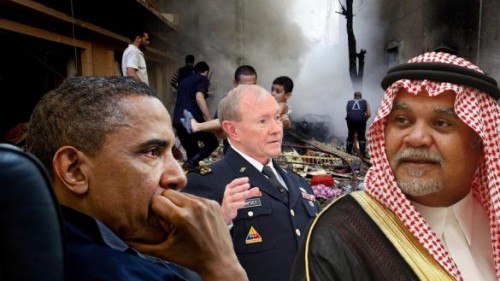
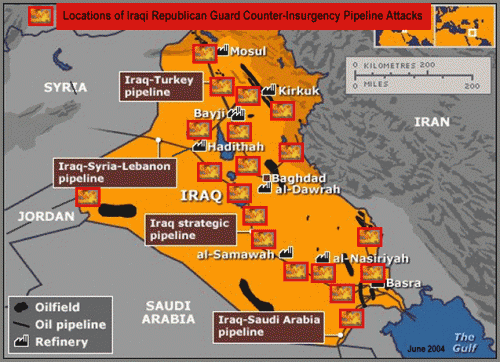
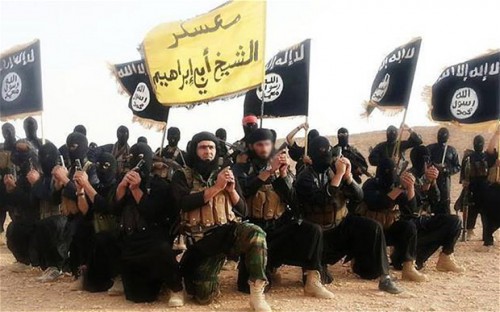
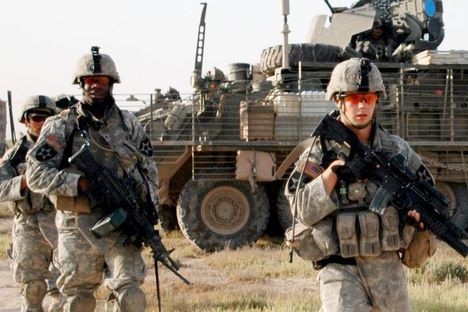
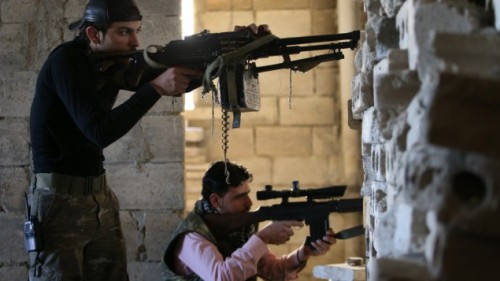
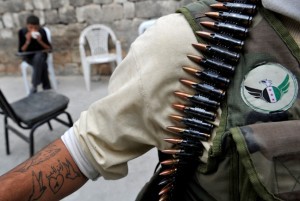 The third and final step the US must take upon losing a war is to leave chaos where victory was denied, and attach responsibility for the conflict to a disposable elected politician – in this case US President Barack Obama. While the war was clearly conceived during the administration of George Bush as early as 2007, it was executed under the watch of Obama. By attaching responsibility for the conflict to Obama, when his term is up and he passes into the hindsight of history, corporate-financier funded policy makers will have before them a clean slate upon which to begin carrying out the next leg of their continuous agenda.
The third and final step the US must take upon losing a war is to leave chaos where victory was denied, and attach responsibility for the conflict to a disposable elected politician – in this case US President Barack Obama. While the war was clearly conceived during the administration of George Bush as early as 2007, it was executed under the watch of Obama. By attaching responsibility for the conflict to Obama, when his term is up and he passes into the hindsight of history, corporate-financier funded policy makers will have before them a clean slate upon which to begin carrying out the next leg of their continuous agenda.
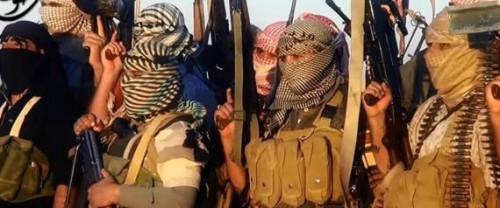


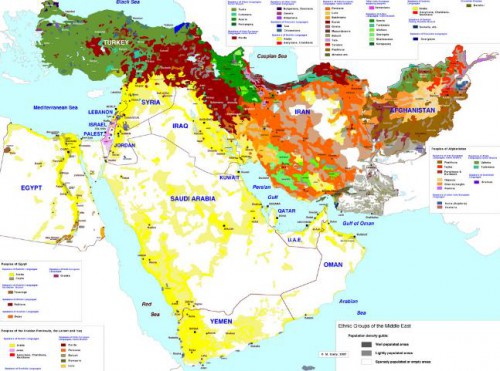
 Pour en revenir à l’Irak, la dissociation entre trois entités sunnite, chiite et kurde satisferait certains acteurs, mais en inquièterait beaucoup d’autres. Elle a été défendue par le président de l’Irak, le Kurde Jalal Talabani,( aujourd’hui en retrait pour des raisons de santé ), mais n’était pas plus recevable autrefois qu’elle ne le serait aujourd’hui par les autres partenaires. Par sa constitution, l’Irak est déjà un Etat unique, souverain, indépendant et fédéral ( Art. 1 ) ; les Kurdes y trouvent de nombreux avantages, ce qui explique leur soutien au gouvernement actuel. Ni la Turquie, ni l’Iran ne sont très favorables à la notion de « Kurdistan » ( la majorité du peuple kurde vit dans ces deux pays ) ; quant aux pays arabes du Golfe, ils ne veulent à aucun prix d’une extension du chiisme iranien sur la Mésopotamie. En résumé, le désordre, créé par l’intervention américaine n’est pas prêt de disparaître. Pour être juste, la politique revancharde envers les Sunnites du premier ministre chiite Nouri al-Maliki n’a pas amélioré les choses, au point que ce dernier est peut-être devenu un obstacle à tout règlement négocié. Oui, le monde devient bien dangereux, et on comprend qu’il est plus aisé de maintenir que de rompre l’intangibilité des frontières… Quelle que soit l’option choisie, le risque de mourir, pour rien ou non, sera présent ; autant que ce soit contre des barbares...
Pour en revenir à l’Irak, la dissociation entre trois entités sunnite, chiite et kurde satisferait certains acteurs, mais en inquièterait beaucoup d’autres. Elle a été défendue par le président de l’Irak, le Kurde Jalal Talabani,( aujourd’hui en retrait pour des raisons de santé ), mais n’était pas plus recevable autrefois qu’elle ne le serait aujourd’hui par les autres partenaires. Par sa constitution, l’Irak est déjà un Etat unique, souverain, indépendant et fédéral ( Art. 1 ) ; les Kurdes y trouvent de nombreux avantages, ce qui explique leur soutien au gouvernement actuel. Ni la Turquie, ni l’Iran ne sont très favorables à la notion de « Kurdistan » ( la majorité du peuple kurde vit dans ces deux pays ) ; quant aux pays arabes du Golfe, ils ne veulent à aucun prix d’une extension du chiisme iranien sur la Mésopotamie. En résumé, le désordre, créé par l’intervention américaine n’est pas prêt de disparaître. Pour être juste, la politique revancharde envers les Sunnites du premier ministre chiite Nouri al-Maliki n’a pas amélioré les choses, au point que ce dernier est peut-être devenu un obstacle à tout règlement négocié. Oui, le monde devient bien dangereux, et on comprend qu’il est plus aisé de maintenir que de rompre l’intangibilité des frontières… Quelle que soit l’option choisie, le risque de mourir, pour rien ou non, sera présent ; autant que ce soit contre des barbares... 
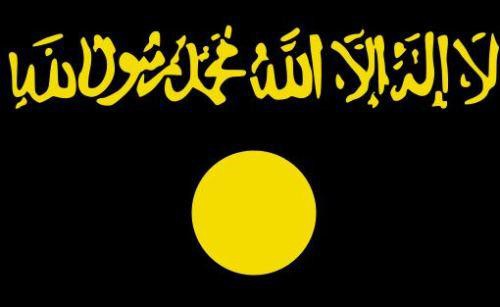

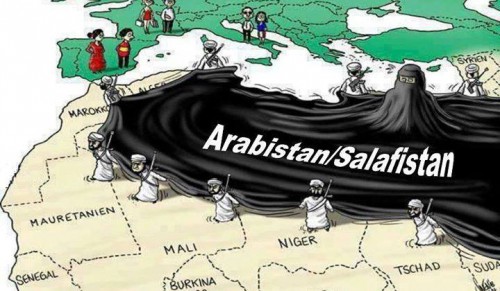
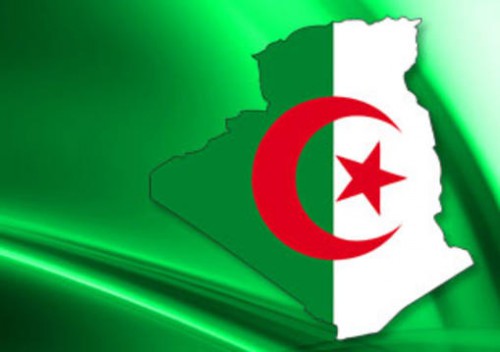
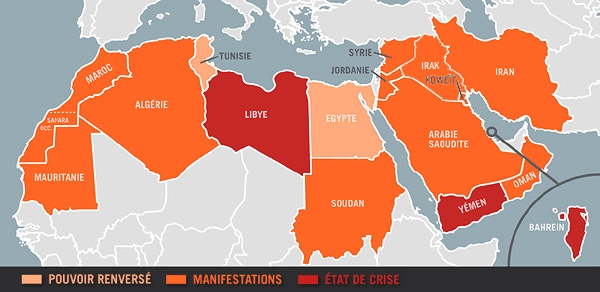
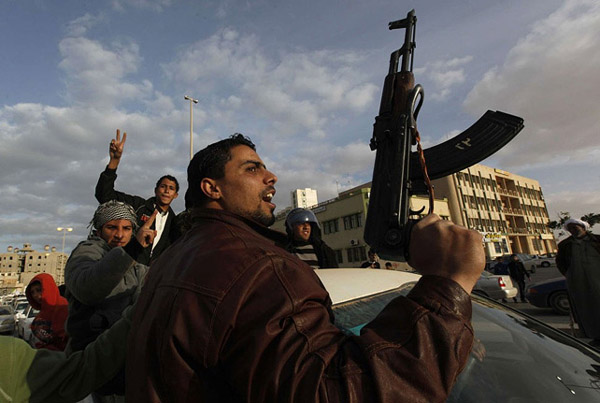
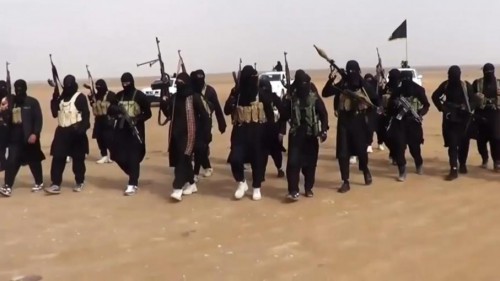
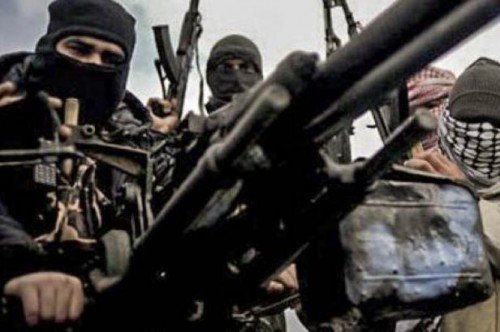
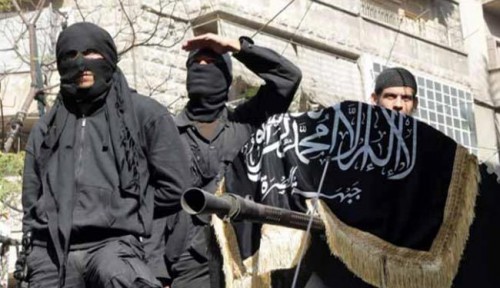
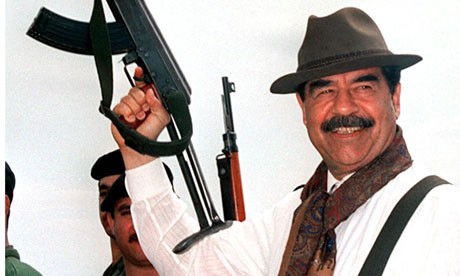




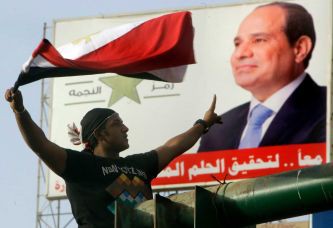
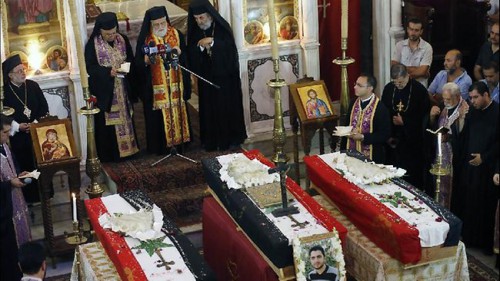
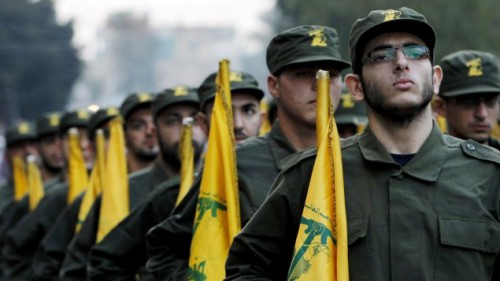
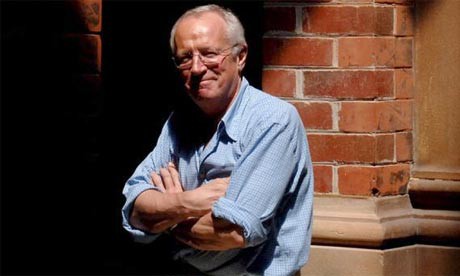
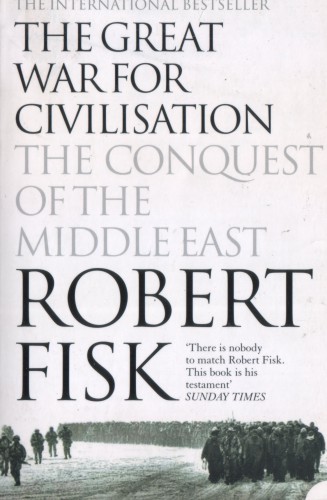
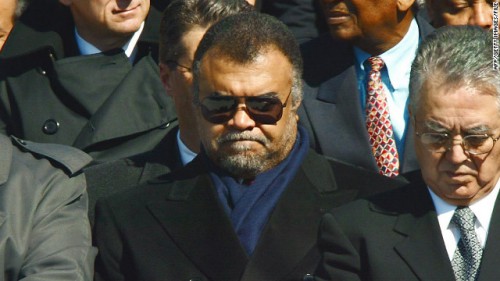
 What makes Bandar such a key piece of the geopolitical puzzle is his intimate relations with the US political, diplomatic, and intelligence establishment. Having spent the majority of his career as the Saudi envoy to Washington, Bandar became an indispensible figure in the decades-old “special relationship” between the two countries. David Ottaway, author of The King’s Messenger: Prince Bandar bin Sultan and America’s Tangled Relationship with Saudi Arabia,
What makes Bandar such a key piece of the geopolitical puzzle is his intimate relations with the US political, diplomatic, and intelligence establishment. Having spent the majority of his career as the Saudi envoy to Washington, Bandar became an indispensible figure in the decades-old “special relationship” between the two countries. David Ottaway, author of The King’s Messenger: Prince Bandar bin Sultan and America’s Tangled Relationship with Saudi Arabia,